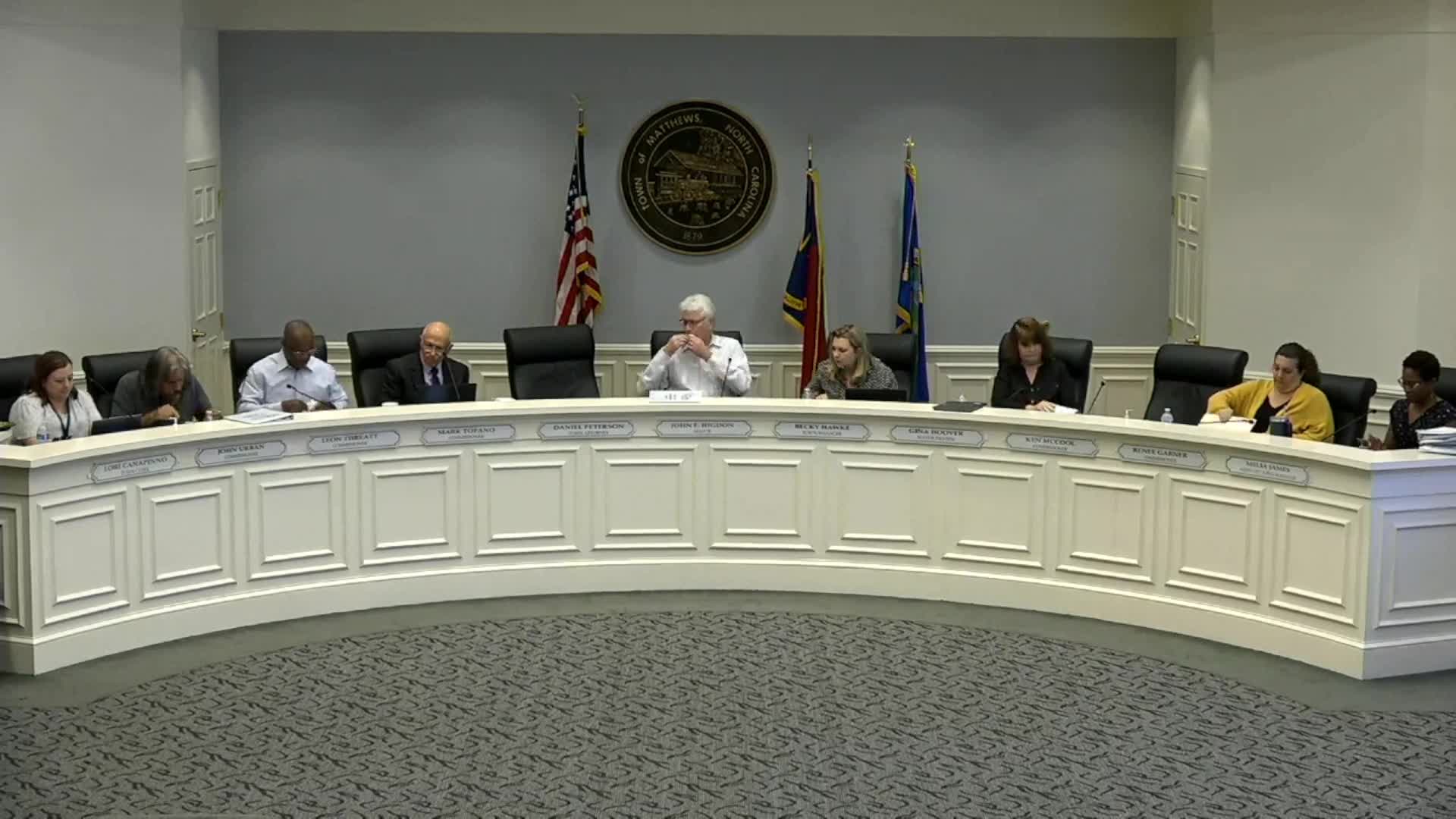Article not found
This article is no longer available. But don't worry—we've gathered other articles that discuss the same topic.
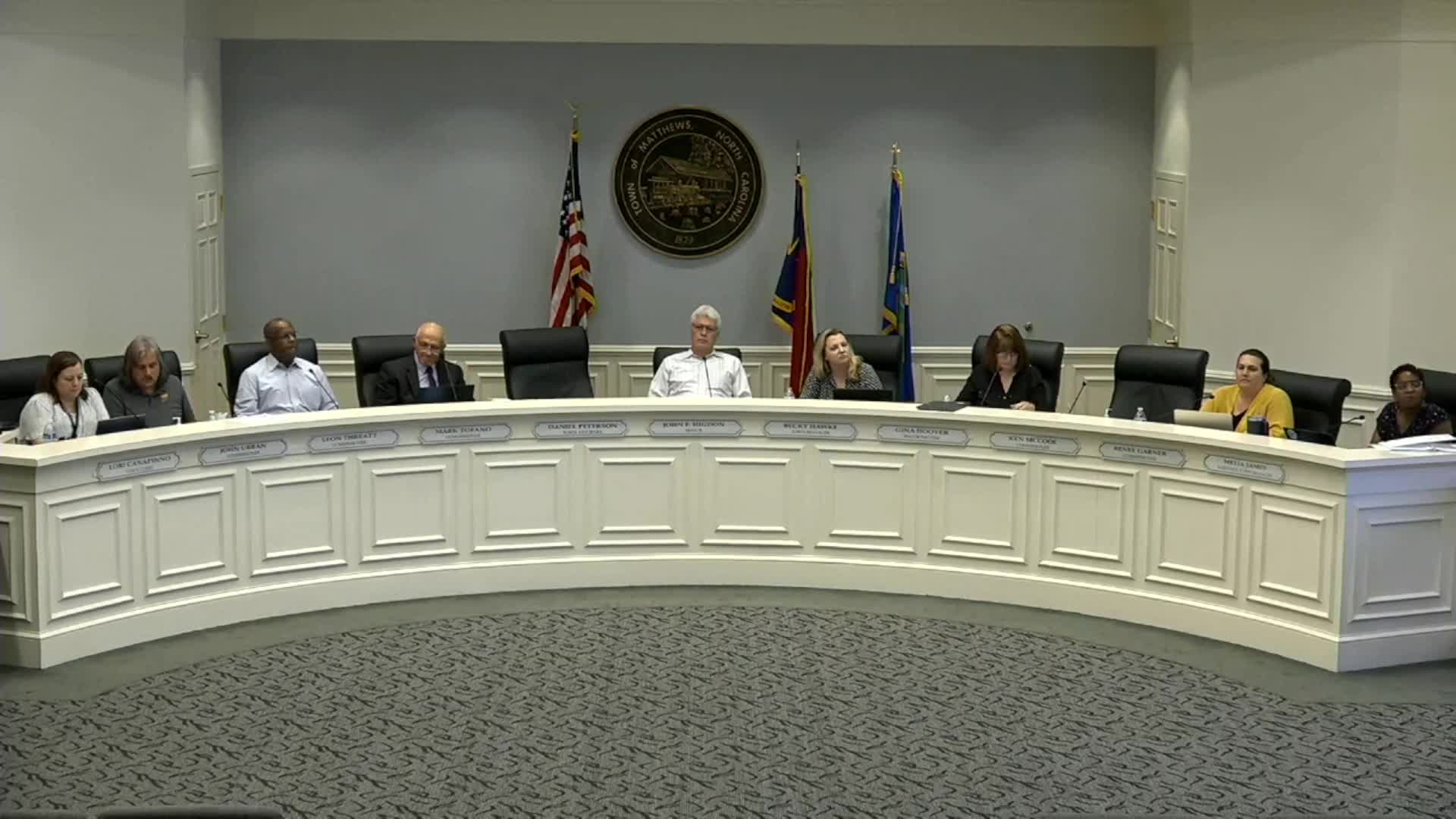
Town staff say fire budget rose for staffing, apparatus and post‑probation raises; Idlewild support explained
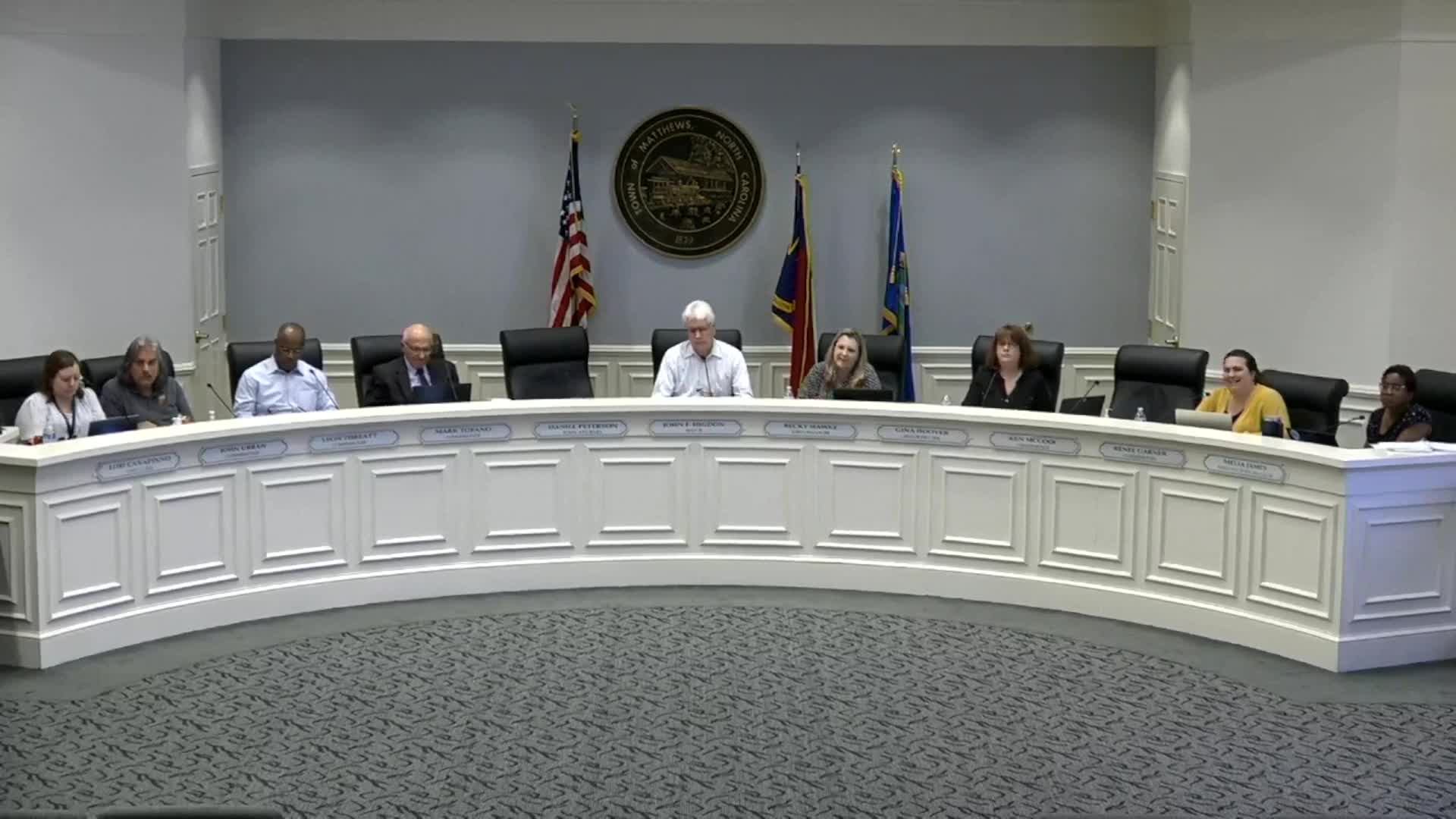
Board discusses Crestdale/Charles Street improvements, stormwater and parks maintenance staffing
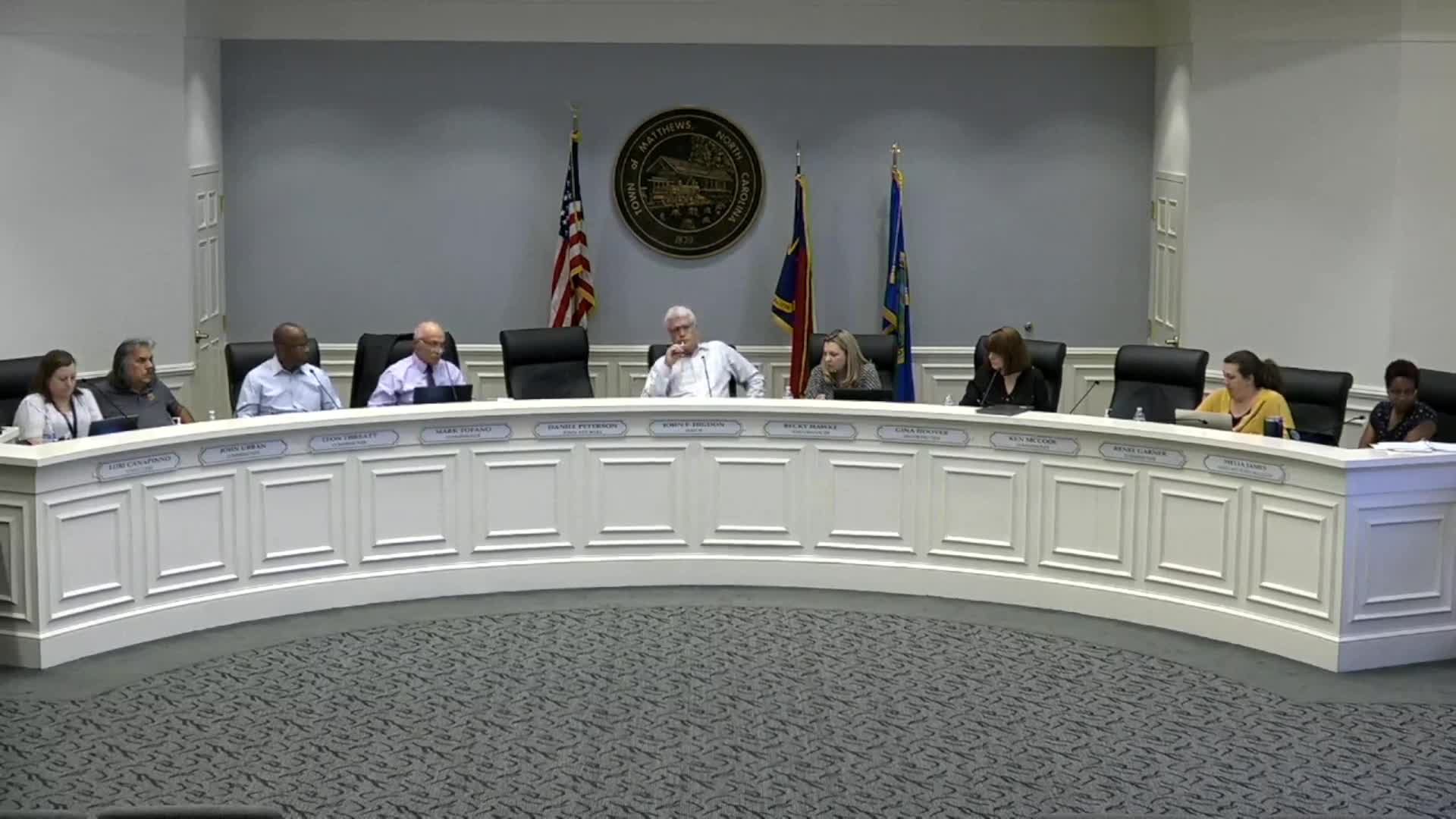
Board debates tourism‑fund rules after requests tied to Matthews Alive and Festival of India
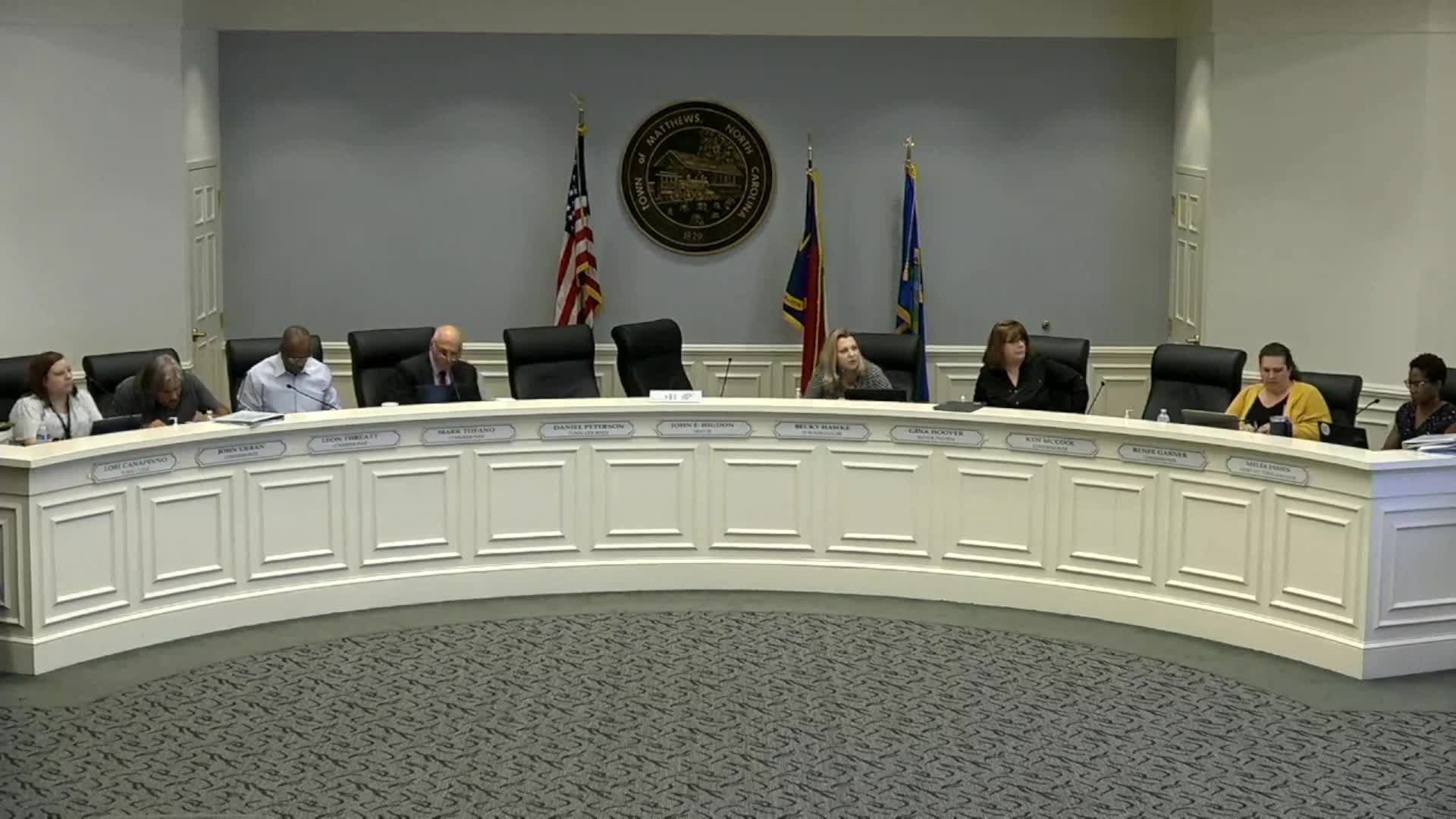
Matthews commissioners debate technology allowance, equity and optics
